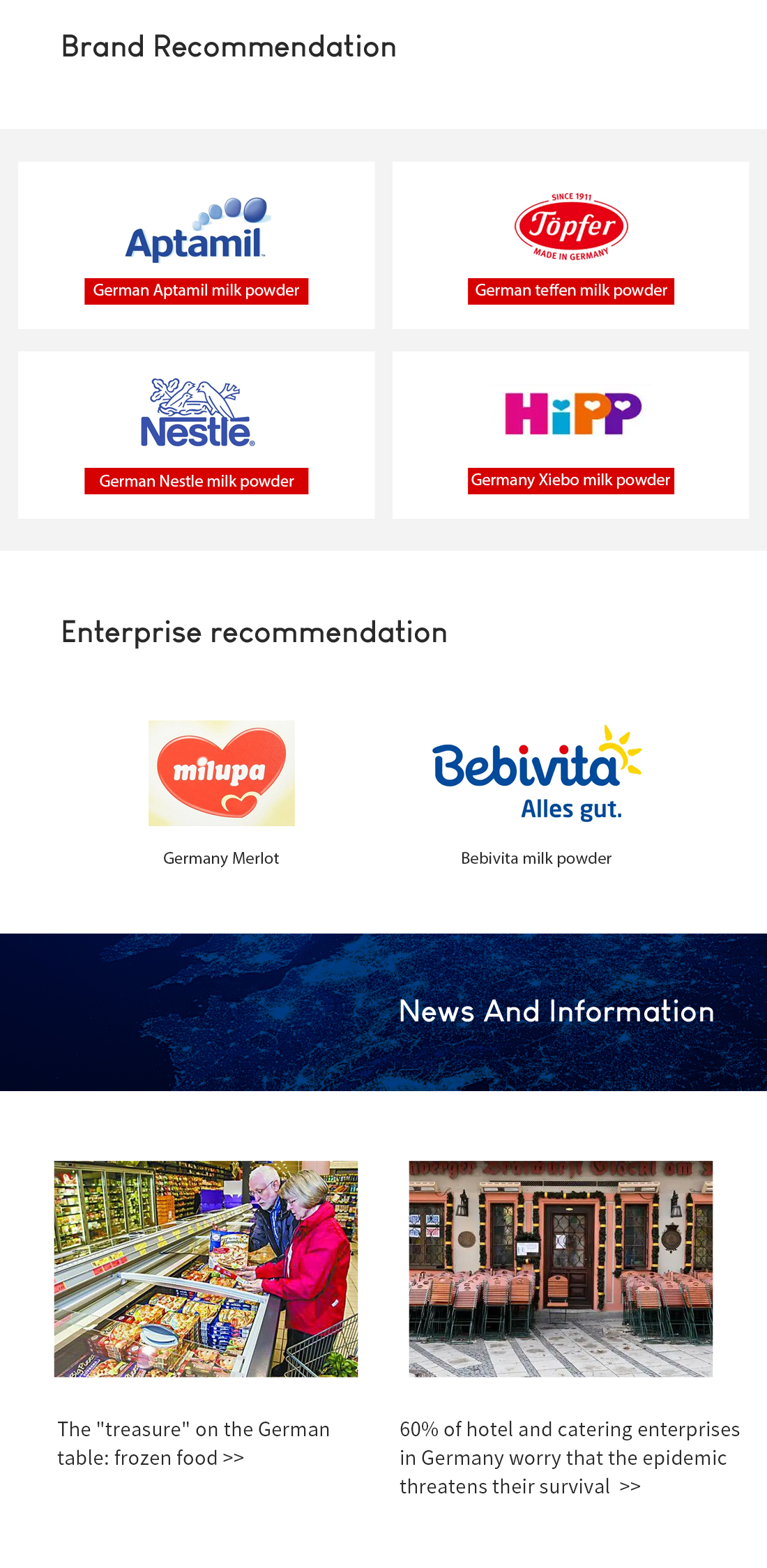
EFL · National City (Germany)
- Frame section: national elements

Landmark: Brandenburg Gate
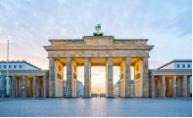
[Country name] The Federal Republic of Germany (Die Bundesrepublik Deutschland)
[Area] 357,582 square kilometers, ranking the fourth in the European Union.
[Population] 83.12 million, making it the most populous country in the European Union with a population density of 232 people per square kilometer, making it one of the most densely populated countries in Europe. They are mainly German, with a small number of Danes and Sorbs. The foreign population is 10,915,400, accounting for 12.2% of the total population, among which the Turks are the largest, about 1,476,400. German is spoken. The population is about 30 percent Protestant and 30 percent Roman Catholic.
[Capital] Berlin, population 3.669 million, annual average temperature 9.5℃.
[Head of State] Federal President Frank-Walter Steinmeier.
New Year: January 1; Easter: the first Sunday after the full moon of the vernal equinox (between March 21 solstice and April 25); May 1 International Labor Day: May 1; German unification day (National Day) : October 3; Christmas Day: December 25th.
Located in central Europe. It is bordered by Poland and the Czech Republic in the east, Austria and Switzerland in the south, Holland, Belgium, Luxembourg and France in the west, Denmark in the north and the North Sea and the Baltic Sea in the north. The total length of the land boundary is 3,876 kilometers, and the coastline is 2,389 kilometers. Located in the north temperate zone between 47 and 55 degrees north latitude, the oceanic climate is more obvious in the northwest, and gradually transitions to the continental climate in the east and south. The average temperature is 5-1 ℃ in January and 14-19 ℃ in July.
[Administrative divisions] Germany is divided into federal, state and municipal levels, with a total of 16 states and 13,175 municipalities.
The Holy Roman Empire of the German nation was established in 962 AD. A unified German Empire was established in 1871.
World War I started in 1914. The Weimar Republic was established in 1919. World War II was launched in 1939. After the war
It was occupied by the United States, Britain, France and the Soviet Union. May 23, 1949 Western promulgated the Basic Law, the establishment of the Federal Republic of Germany
Countries. The German Democratic Republic was established in the east on October 7 of the same year. On October 3, 1990, Germany was unified.
The Prime Minister assumes overall responsibility under a parliamentary democracy.
【 Constitution 】 The Basic Law of the Federal Republic of Germany entered into force on May 23, 1949. The basic law defines Germany's five basic systems: republican, democratic, federal, rule of law state and social welfare system.
Consisting of the Bundestag and the Bundestag. The Bundestag exercises legislative power, supervises the enforcement of laws, elects the federal chancellor, participates in the election of the federal president and supervises the work of the federal government. Each term of office is four years.
【 Government 】 The current federal government was formed on 14 March 2018 by the League and the Social Democratic Party.
The Federal Constitutional Court is one of the constitutional institutions of Germany.
In addition, there are Federal Courts (for civil and criminal cases), Federal Administrative Courts, Federal Financial Courts, Federal Labour Courts, Federal Social Courts, etc. The federal and state courts have corresponding procuratorates, but they are not under the jurisdiction of the court and do not interfere with the trial work of the court. Their main task is to lead the investigation and prosecution of criminal cases. The prosecutor's office is under the leadership of a federal or state department of justice and is relatively independent in the exercise of its powers.
[Political Parties] Germany is a multi-party system, with the following main parties:
(1) Christian Democratic Union of Germany (Christlich-Demokratische Union Deutschlands) : "Christian Democratic Union" for short. The main ruling party.
(2) Christian Social Union (Christlich-Soziale Union in Bayern e.V.) : "Christian Social Union" for short. The ruling party. It was founded in 1945.
(3) German Social Democratic Party (Sozialdemokratische Partei Deutschlands) : referred to as "Social Democratic Party", the main ruling party. Founded in 1863, it is one of the oldest workers' parties in the world.
(4) Alternative fur Deutschland.
(5) Freie Demokratische Partei (Free Democratic Party).
(6) The Left Party (Die Linke) : Opposition Party. On June 16, 2007, it was formed by the merger of the left-wing party, Demokratische Linke -- PDS, and the Labour and Social Fair Electoral Alternatives Party (Wahlalternative Arbeit und Soziale Gerechtigkeit).
(7) Bundnis 90/Die Grunen: "The Green Party" for short. The opposition.
(8) Deutsche Kommunistische Partei, the Communist Party of Germany.
Germany is a highly developed industrial country. Its economic aggregate ranks first in Europe and fourth in the world. Total foreign trade in 2019 was 2,431.9 billion euros, of which exports were 1,327.8 billion euros, up 0.8%; imports were 1,104.2 billion euros, up 1.4%, with a surplus of 223.6 billion euros. In 2019, domestic asset investment was 705.7 billion euros, private disposable income was 1,929.8 billion euros, private consumption expenditure was 1,777.5 billion euros and public expenditure was 663.1 billion euros. Gross national income was 3.460.4 trillion euros. In 2019, the country's total debt amounted to 1,899.2 billion euros, accounting for 55.3 percent of GDP. The total revenue of the public finance was 1.542.7 trillion euros, and the total expenditure was 1.497.4 trillion euros, leaving a surplus of 45.2 billion euros. The key data for the German economy in 2019 are as follows:
GDP: 3,435.8 billion euros.
Per capita GDP: €41,342.
GDP growth rate: 0.6 percent.
Name of currency: Euro.
Inflation rate: 1.7%.
Number of employed: 45.23 million.
Unemployment rate: 3.4%.
The total surplus in the public finances was 49.8 billion euros.
(Source: website of the German Federal Statistical Office)
German economic growth from 2015 to 2019
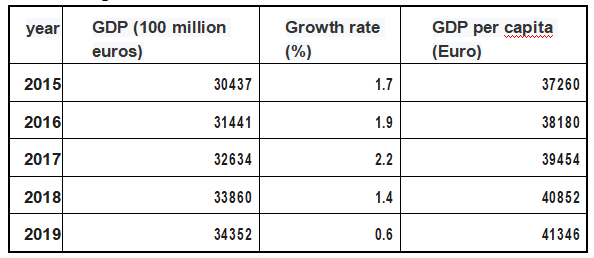
Source: German Federal Statistical Office
[Resources] Germany is a country with relatively poor natural resources. In addition to its abundant reserves of hard coal, lignite and salt, Germany is largely dependent on import in terms of raw material supply and energy. About 2/3 of the primary energy needs are imported. Natural gas reserves are about 382 billion cubic meters, which can meet about a quarter of domestic demand. Proven reserves of hard coal are about 230 billion tons and lignite about 80 billion tons. Other proved reserves are about 13 billion tons of potash, 1.6 billion tons of iron ore, and 50 million tons of oil. There is a small amount of uranium in the southeast. Forest covers an area of 10.766 million hectares, accounting for about 30 percent of China's total area. The water area is 860,000 hectares, accounting for 2.4% of the country's total area.
[Industry] In 2019, the total output value of industrial enterprises (excluding construction) was 824.6 billion euros, accounting for 24% of the GDP. In 2018, the total output value of industrial enterprises (excluding construction) was 874.2 billion euros, accounting for 25.8% of the GDP. In 2018, the number of industrial employment (excluding construction) was 8.335 million, accounting for 18 percent of the country's total employment (46.2 million). Industrial structure and characteristics :(1) focus on heavy industry. The automobile and machinery manufacturing, chemical and electrical sectors are pillar industries, while other manufacturing industries such as food, textile and clothing, iron and steel processing, mining, precision instruments, optics and aerospace industries are also well developed. (2) Highly extroverted. More than half of the products of the major industrial sectors are sold abroad. (3) SMEs are the mainstay. About two-thirds of industrial firms employ fewer than 100 people. Many small and medium-sized enterprises have strong degree of specialization, high technical level and strong flexibility. (4) High degree of monopoly. Large enterprises with more than 1,000 employees, which account for 2.5 percent of the total number of industrial enterprises, account for 40 percent of industrial employment and more than half of the turnover.
[Agriculture and Animal Husbandry] Agriculture is developed with a high degree of mechanization. In 2019, there are 18.16 million hectares of agricultural land, accounting for about half of Germany's land area, of which 11.731 million hectares are farmland. In 2019, there were 266,700 agricultural enterprises, mainly small and medium-sized enterprises and family enterprises, occupying an average of 63.7 hectares of land, of which 19,900 were ecological agricultural enterprises. In 2019, 940,100 people were employed in agriculture, forestry and fisheries, accounting for 1.39 percent of the country's total employment. In 2018, the output value of agriculture, forestry and fisheries was 22.71 billion euros, accounting for about 0.67 percent of the GDP.
[Foreign Trade] As a major trading country in the world, Germany has maintained trade relations with more than 230 countries and regions in the world. Nearly one third of the country's employed people are engaged in export-related jobs. From 1986 to 1990, and from 2003 to 2008, it maintained the position of the world's largest exporter. Total foreign trade in 2019 was 2,431.9 billion euros, of which exports were 1,327.8 billion euros, up 0.8%; imports were 1,104.2 billion euros, up 1.4%, with a surplus of 223.6 billion euros. The situation of foreign trade in recent years is as follows (unit: 100 million euros) :

(Source: website of the German Federal Statistical Office)
German exports are renowned for their high quality, good service and punctual delivery. The main export products are automobile, mechanical products, chemical products, communication technology, power supply and distribution equipment and medical and chemical equipment. The main imports are chemicals, automobiles, oil and gas, machinery, communications technology and steel products. The main trade partners are western industrial countries, of which more than half of imports and exports come from or are sold to EU countries. Exports and imports to major trading partners in 2019 are as follows (in EUR 100 million) :

(Source: website of the German Federal Statistical Office)
Germany is a major trading country in the world. It maintains trade relations with more than 230 countries and regions in the world. Nearly one third of the country's employees are engaged in export-related jobs.
[Total trade volume] In 2019, Germany's total import and export volume reached 2.43 trillion euros, including 1.33 trillion euros of exports and 1.1 trillion euros of imports, with a trade surplus of 223.6 billion euros.
In 2019, China became Germany's largest trading partner for the fourth consecutive year, with a total trade volume of 205.9 billion euros, according to the Federal Statistical Office of Germany. In second place was the Netherlands, with total trade of 191.0 billion euros, and in third place was the United States, with total trade of 190 billion euros.
In terms of exports, the United States remains Germany's largest export market. In 2019, Germany's exports to the United States totaled 118.7 billion euros, followed by France at 1,067 euros and China at 96 billion euros.
In terms of imports, China remains Germany's largest import market. In 2019, Germany's imports from China totaled 109.9 billion euros, followed by the Netherlands (98.5 billion euros) and the United States (71.4 billion euros).
The European Union is Germany's main trading partner.
Germany's major trading partners in 2019
(Unit: 100 million Euros)

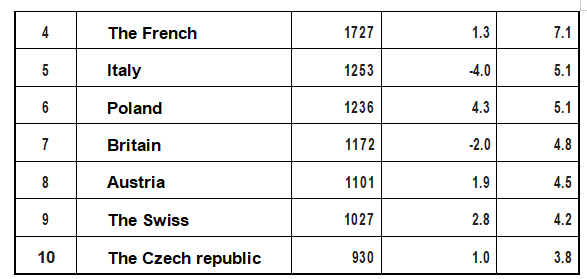
Source: German Federal Statistical Office
[Trade Structure] The structure of Germany's foreign trade products reflects the characteristics of Germany's economic structure, which is dominated by automobiles, machinery, chemical and electrical products. In recent years, the structure of Germany's foreign trade products is very stable without obvious changes, as shown in the following table.
The structure of Germany's foreign trade commodities in 2019
(Unit: millions of Euros)
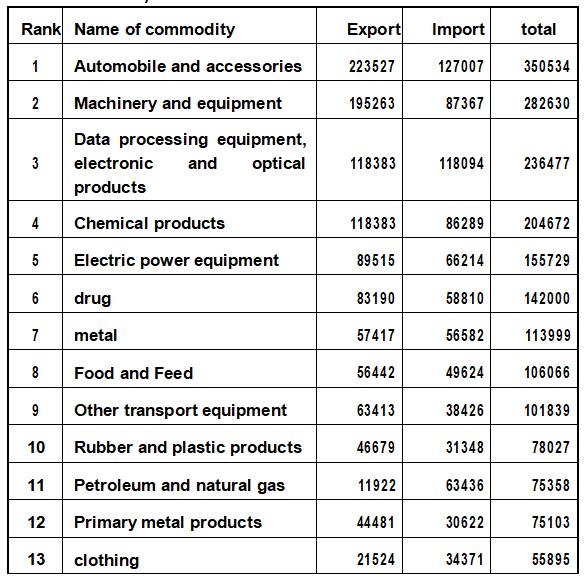
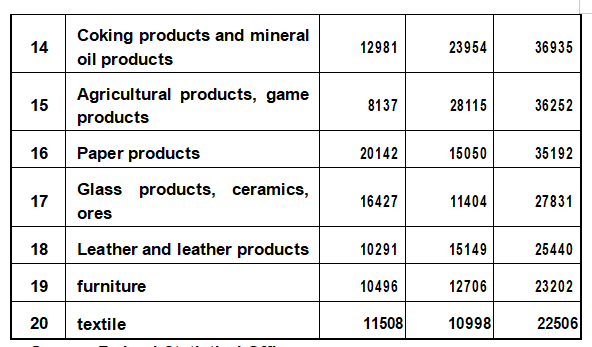
Source: German Federal Statistical Office
[Service Trade] Germany has a good domestic service industry foundation, which drives the development of its service trade. According to the statistics of the German Federal Statistical Office, in 2018, Germany imported 310.198 billion euros in services and exported 290.647 billion euros. Germany's key service trade industries include information and communication technology, tourism services, transportation and logistics services, etc.
【 Famous enterprises 】 There are 27 German enterprises in the world's top 500 in 2020.
List of German companies that will be among the top 500 in the world by 2020
(Unit: millions of US dollars)

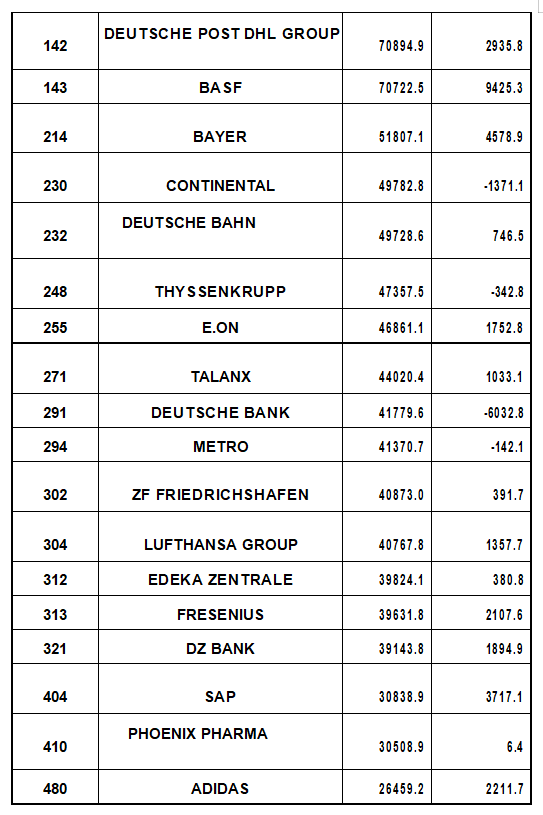
Source: Fortune 2020
Germany's economy has a high degree of external dependence. In the second half of 2019, due to a series of factors such as international trade disputes, declining market demand, industrial restructuring, and driving technological changes, the development of Germany's automobile, mechanical equipment, electronics and electrical and other important industries has been sluggish. The COVID-19 epidemic caused a decline in both production and demand, impacting the stability of the global industrial chain and supply chain, especially affecting the above major export industries. New orders, output, sales volume, exports and other major indicators all declined to varying degrees. In the first quarter of 2020, German passenger car production and exports declined by 20% and 21%, respectively. Exports of machinery and equipment products fell by 6.6% year on year. Output and sales in the electronics and electrical sector fell 2.9 per cent and 3.4 per cent, respectively, year on year. The declines are expected to be even sharper in the second quarter. The pharmaceutical industry develops steadily because of the larger market demand.
Germany joined the General Agreement on Tariffs and Trade (GATT) in 1951 and was a full member of the WTO when it was created on January 1, 1995.
[Regional Trade Agreement] Germany is one of the founding countries of the European Union, so goods originated in Germany
Free access to the European Union. As a member of the EU, Germany is bound by its rights and obligations in all the free trade agreements and preferential trade arrangements signed by the EU.
In 2019, China remained Germany's largest trading partner for the fourth consecutive year, and Germany is China's largest trading partner in Europe. According to Chinese customs statistics, the bilateral trade volume between China and Germany in 2019 was 184.88 billion US dollars, an increase of 0.6% year on year. Among them, China's export to Germany was US $79.77 billion, up 2.9% year on year. China's imports from Germany reached US $105.11 billion, down 1.1% year on year, with a deficit of US $25.36 billion. According to the German Federal Statistical Office, in 2019, the bilateral trade volume between China and Germany was 205.9 billion euros, up 3.3% year on year. Imports from China were 109.9 billion euros, up 3.5% year on year, and exports to China were 96 billion euros, up 3.1% year on year, with Germany running a deficit of 13.9 billion euros. In 2019, China ranked third among Germany's export markets, accounting for 7.2%. Among the sources of imports, China ranks first, accounting for 9.9 percent.
China's exports to Germany mainly include data processing and electronic and optical equipment, electrical equipment, clothing, mechanical equipment, metal products, etc. China's imports from Germany mainly include automobiles and accessories, machinery and equipment, data processing and electronic and optical equipment, electrical equipment, chemical products, etc.
China-Germany bilateral trade from 2015 to 2019
(Unit: 100 million Euros)

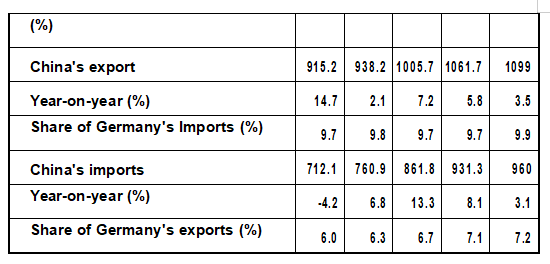
Source: German Federal Statistical Office
German culture
Every nation has its own culture, which affects the way of behavior and thinking of a nation all the time. When it comes to Germany, the first words that come to mind are: rational, rigorous, earnest, punctual, trustworthy, disciplined, etc. In history, Germany is also known as "a country of poets and thinkers". Poets and scholars emerge one after another. Goethe, Schiller, Hlderlin, Heine, Rilke, Thomas Mann and others are representative figures in the history of German literature. In German life, literature, music, art and food are indispensable. Various concerts, food festivals and art exhibitions will be held all over Germany, such as Munich Oktoberfest and Berlin Culture Carnival. German people's love and pursuit of life can be reflected everywhere.
Abide by the rules
Abide by the rules is not simply because the quality of Germans is much higher than that of other nationalities. In Germany, a country that values efficiency, rules and order represent high efficiency in the hearts of German people. On the one hand, they regard the rules as important, on the other hand, they abhor the behaviors that violate the rules and destroy the order. In Germany, if someone runs a red light or jumps in line, the German people will spontaneously fulfill the civic duty of prosecuting and prosecuting those violators. Violators will not only accept fines but also be recorded on their personal credit files. Once a person's files appear disgraceful records, he will encounter great obstacles in finding a job or borrowing money to buy a car or a house.
To be punctual
Punctuality is also a manifestation of German adherence to rules and institutions. In Germany, it is considered rude to be late for an appointment, except under special circumstances. Unlike Chinese people, German people do not use vague time words like "in a while" to describe time. German people's time is accurate to minutes. So the average German would rather be early than late to meet.
Rigor and Excellence
The attention to detail and the rigorous attitude to work also make the Germans leave a deep impression. It is precisely because of the rigor in German culture that German people are meticulous and serious in their work. As for the quality of their products, they should also strive for excellence. Reflected in the corporate culture, is for the product quality and research and development of the high importance. In Germany, the mention of the word "made in Germany", the hearts of Germans will have a sense of pride, because they know that the quality of German products in the world must be the most first-class.
- Frame section: hot news
(1) German cuisine: You haven't been to Germany without eating black forest sausage
http://de.haiwainet.cn/n/2014/1102/c457020-21321124.html
(2) The opening of the International Green Week in Berlin. The German-style "temple fair" is delicious and fun
http://de.haiwainet.cn/n/2018/0123/c456991-31243126.html
(3) The China-Europe freight train will run directly from Germany to the Sino-German Garden in Shenyang, creating a new plateau in opening up
http://de.haiwainet.cn/n/2018/0321/c456991-31283413.html
- Frame: Country · Human Geography
The Federal Republic of Germany (German: Die Bundesrepublik Deutschland; English: Federal Republic of Germany), abbreviated to Germany (German: Deutschland; English: Germany). It is a federal parliamentary republic country located in central Europe, bordering on Denmark in the north, the Netherlands, Belgium, Luxembourg and France in the west, Switzerland and Austria in the south, and the Czech Republic and Poland in the east. It is composed of 16 federal states, with the capital Berlin. The territory covers an area of 357,582 square kilometers, mainly with a temperate climate and a population of about 82.93 million. It is the most populous country in the European Union, with German as the main ethnic group.
The ancestors of the German people were the ancient Germanic people who lived in central Europe. The Holy Roman Empire was founded by the Germanic people in the 10th century and then divided. In 1871, the Kingdom of Prussia annexed all German states except the Austrian Empire to establish the German Empire, and the reunification of Germany was completed. In 1914 and 1939, Germany started and lost two world wars. It split into east and west in 1945. On October 3, 1990, the German Democratic Republic (East Germany or GDR for short) merged into the Federal Republic of Germany, resulting in the reunification of the two.
Germany is a highly developed capitalist country, the largest economy in Europe, the first of the four economies in Europe, a founding member of the European Union, and an important member of NATO, Schengen Convention, G7, the Organization for Economic Cooperation and Development and other international organizations. Its social security system is perfect and its citizens have a very high standard of living. High-end manufacturing, represented by automobiles and precision machine tools, is also an important symbol of Germany. (Source: Baidu Baike)
(1) The German countryside! A very beautiful little village in Germany!
https://www.iqiyi.com/v_19rrqhadgc.html
(2) Aerial photographing of Germany, seeing all the sceneries in Germany in 4 minutes
https://v.qq.com/x/page/w0518dhlpvb.html
(3) actual shooting: German food packaging machine is really powerful, the production process looks very comfortable!
https://haokan.baidu.com/v?vid=8654610791340969218&pd=bjh&fr=bjhauthor&type=video
- Frame section: the latest information
(1) Braised Beaker German LFGB food grade test standard project
https://www.163.com/dy/article/G9NVUBSF0532MKWR.html
(2) Shandong Province and Bavaria of Germany will hold the "Luba Food Industry Through Train" online exchange meeting
https://baijiahao.baidu.com/s?id=1684971191300399581&wfr=spider&for=pc
(3) The "treasure" on the German table: frozen food
https://baijiahao.baidu.com/s?id=1676772467160025677&wfr=spider&for=pc
(4) Organic food sales in Germany hit a new high in 2020
https://baijiahao.baidu.com/s?id=1692034242091821180&wfr=spider&for=pc
(5) 60% of hotel and catering enterprises in Germany worry that the epidemic threatens their survival
http://news.foodmate.net/2020/08/569057.html
(6) Singapore has suspended imports of poultry products from areas affected by avian influenza in Germany
http://news.foodmate.net/2021/05/592445.html
(7) Germany has reported 35 new cases of highly pathogenic avian influenza A (H5N8)
http://news.foodmate.net/2021/04/592021.html
(8) The first African Swine Fever epidemic occurred in Germany
http://news.foodmate.net/2020/09/571662.html
- Frame section: introduction of country and food
Germany has developed agriculture with a high degree of mechanization. Germany has 16.67 million hectares of agricultural land, accounting for about half of the total land area of Germany, including 11.77 million hectares of farmland. Germany has 267,000 agricultural enterprises, mainly small and medium-sized enterprises and family enterprises, of which nearly 20,000 are ecological agricultural enterprises. German cuisine is mainly sour and salty with strong seasoning. Cooking methods to roast, stewed, skewered, braised - based. There is a basket of bread on the blue tablecloth, and the guests can enjoy it slowly while waiting. German bread has a strong bite, and people with good teeth can taste it. German soup is generally more thick, like to break the raw materials in the soup, which is probably related to the local cold climate. It is said that the German natural nature is more frugal, boiled sausages, a pot of thick potato bean soup, plus the famous pickled pickled cabbage and bread, a meal was sent.
- Frame section: food standards
Braised beaker German LFGB food grade test standard project
https://www.163.com/dy/article/G9NVUBSF0532MKWR.html
- Framework: Policies and regulations
7.1 Regulations and policies on foreign trade
7.1.1 Trade authorities
Germany is in charge of trade is the Federal Ministry of Economy and Energy (referred to as the Ministry of Economy), its main responsibility is to ensure the sustained growth of the German economy and Germany's advantage in attracting foreign investment.
[Management Objectives] The Ministry of Economic Affairs is committed to achieving the following seven management objectives:
(1) To achieve high employment rate in Germany through relevant economic policies;
(2) Support the development of small and medium-sized enterprises;
(3) Promoting scientific and technological innovation to enhance the competitiveness of the German economy;
(4) Balance the relationship between economic development and ecology, and take the road of sustainable development;
(5) Deepen the international division of labor in the global context and promote free trade;
(6) To promote Germany's transformation from an industrial country to a knowledge-based information society;
(7) Ensure Germany's energy supply at reasonable prices.
7.1.2 Trade legal system
The most important law of Germany in trade management is the Foreign Economic Law and the related Foreign Economic Regulations.
[Basic structure of Foreign Economic Law] German Foreign Economic Law is divided into four chapters, a total of 52 articles. The specific structure is as follows:
Basic structure of German Foreign Economic Law

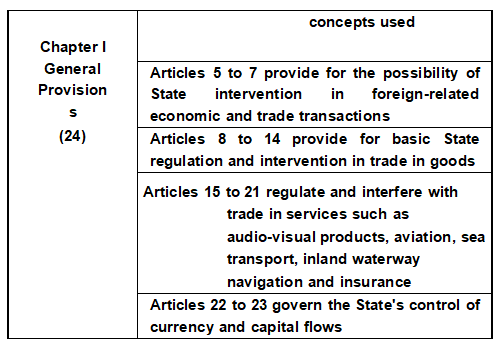
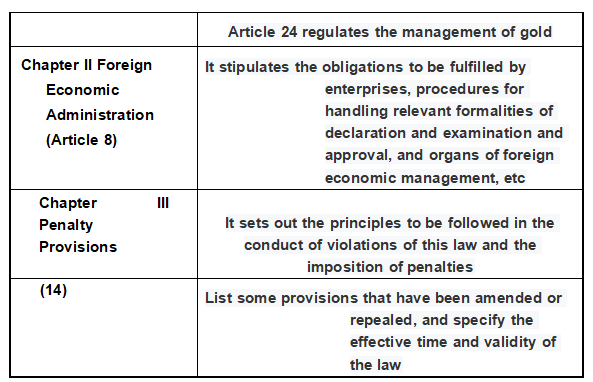
Source: Economic and Commercial Office of the Chinese Embassy in Germany
[The main content of the Foreign Economic Law] The leading idea of the German Foreign Economic Law is to reduce the restrictions on foreign economic activities as much as possible. Article 1 of the law stipulates that "foreign economic exchanges are in principle free". But while recognising this basic principle, the EEA also reserved the right for the German government to intervene in certain circumstances. According to the regulations, the German Government has the right to intervene in its foreign economic activities in the following cases:
(1) Guarantee the performance of obligations under agreements between States;
(2) To prevent or counteract the effects on the German economy of harmful measures taken by foreign countries, including by resisting the inflow of harmful money and capital from abroad;
(3) To prevent or offset the impact of foreign policies that are not in line with the principles of free trade on Germany;
(4) To ensure Germany's national security, diplomatic interests and maintenance of world peace.
In addition, the Foreign Economic Law also stipulates that if the domestic supply of daily necessities is endangered, the export of relevant commodities can be restricted; The export of the commodities concerned may be restricted in order to protect the domestic economy; In order to protect domestic interests, it may restrict trade in services with foreign countries; To ensure a long-term balance of payments, capital transactions with foreign countries can be investigated; In order to protect the stability of the national currency or to maintain the balance of international payments, it can restrict the capital and currency of non-nationals in Germany; May restrict non-domestic people to establish subsidiaries and representative offices in Germany; In order to prevent the inflow of harmful money and capital from foreign countries, it is stipulated that a certain proportion of the loans of domestic people from foreign people must be deposited in an account of the Federal Bank of Germany without interest within a certain period of time, that is, "limited mortgage obligation".
In recent years, Germany has continuously strengthened the review of the merger and acquisition of enterprises from non-EU countries or the participation in German enterprises, and revised the Foreign Economic Law and the Foreign Economic Regulations. See 7.2.3 for details.
7.1.3 Relevant provisions on trade management
Trade between Germany and non-EU countries (third countries) is subject to EU common policy measures, such as common trade, common tariff list, etc. The EU's international trade agreements with third countries apply directly to Germany. The formulation and implementation of a common trade policy are carried out in the Community. All member states grant the same terms of import and export. The Council of the European Union or the Commission establishes trade instruments through directly-applicable regulations, and the Commission is responsible for policy enforcement and conducting anti-dumping, countervailing and safeguard investigations.
In principle, Germany does not impose import or export restrictions, but there are import authorization obligations or quantitative restrictions on goods from certain countries. Under Article 36 of the Treaty establishing the European Community, the German government is primarily responsible for licensing imports and exports, as well as for imposing restrictions on imports and exports for non-economic reasons, such as the protection of human and animal health.
Germany's trade with outside the EU (known as third party trade) is subject to all the measures and principles of the EU's common trade policy towards third countries, including: The Community Customs Code, the Common Customs Tariff, various non-tariff measures, and a system of bilateral agreements concluded with non-EU member states.
7.1.4 Relevant provisions on import and export inspection and quarantine
The EU technical standards are complex, and the products that the manufacturer (or importer) intends to enter the EU market need to obtain the technical certificate from the EU. Technical harmonization standards are published on the EU Official Journal website, marked by the EN code. Relevant laws and regulations can be found on the website:
ec.europa.eu/growth/single-market/european-standards/harmonise d-standards_en
[Inspection and Quarantine Department] Germany import and export animal and plant inspection and quarantine affairs are mainly responsible by the customs,
Deutschland Customs is an independent business department under the Federal Ministry of Finance of Germany, which adopts a three-level vertical management model. The highest federal administrative department is the third department of the Federal Ministry of Finance, and the second level administrative department is the Federal State Expensive Spirits Management Committee, under which there are five cross-state federal financial agencies and the Customs Criminal Investigation Bureau. The third level administrative bodies are the regional Customs General Administration, the Customs Anti-Inspection Bureau and the Customs.
In order to prevent harmful animals and plants and some infectious viruses and bacteria from entering Germany, Germany strictly implements the relevant laws and regulations of the EU within the framework of the EU.
Plants: EU Regulation on the entry of plants into the EU. Specific content please consult the German federal economic crops research institute website: pflanzengesundheit. Julius - kuehn. DE /
Animals: EU Regulation on the entry of animals into the EU. For details, please consult Germany
Department of Agriculture website:
www.bmel.de/DE/Tier/TierhandelTransport/TierhandelTransport_no de.html
7.1.5 Customs management rules and regulations
[Customs tariff] The European Community customs tax system is applicable in Germany. The tariff table includes agreed rates, applicable to WTO Members or countries that have entered into most-favoured-nation agreements with the Community. Some products (mainly foodstuffs) adopt autonomous tariffs in the tariff table, which are not bound by MFN treatment and WTO obligations.
The Community tariff rates for the following year are published in the Official Gazette of the EU at the end of October each year. There are general
ec.europa.eu/taxation_customs/dds2/taric/taric_consultation.jsp
Enter the customs code for the item and it will display the tariff rate and other relevant information, such as customs
Tax quota, quantity limit, tariff suspension, anti-dumping duty, countervailing duty, agricultural duty, regulatory conditions and other foreign trade policy measures for the products. TARIC does not contain VAT or GST information.
The EU members offer one-way preferential tariff policies to developing countries
Agreed tariffs and the Generalized System of Preferences (GSP) for African, Caribbean, and Pacific countries, as well as reciprocal arrangements under the framework of free-trade agreements (e.g., EFTA countries, Mexico, Chile, South Africa).
GSP Tariffs General System of Preferences The beneficiaries of the GSP include 178 countries and regions. The original GSP applied until the end of 2008. Since the beginning of 2006, the European Union has begun to adjust the GSP to cover the vast majority of less developed countries, especially small, island, landlocked and relatively small economies
For a single country. In addition, the GSP also simplifies the "graduation mechanism". If imports of a particular category of products from a country exceed 15 per cent of imports from all GSP beneficiaries, the country's GSP eligibility will be revoked and special preferences will no longer be granted on access to the European market. The cancellation standard for textiles and clothing was reduced to 12.5 per cent. Under the new mechanism, although China is still formally a beneficiary of the GSP, about 80% of the products exported from China to the EU market do not enjoy the GSP policy. And the products imported from India, except the textile raw materials exceed the standard will no longer enjoy preferential treatment, its clothing products can still enjoy the universal preferential policy.
The GSP also provides additional tariff preferences for countries that have concluded higher-level trade agreements with the EU, including environmental provisions, social provisions on human and Labour rights, and good governance provisions
(GSP Plus). The Additional Generalization Scheme ensures that 91% of the products covered in the tariff can enter the EU market duty-free. At present, 15 countries are benefiting from the program: five Andean countries (Bolivia, Ecuador, Colombia, Peru and Venezuela); six Central American countries (Guatemala, Honduras, Costa Rica, Nicaragua, Panama and El Salvador); and Georgia and Mozambique
Dorva, Mongolia and Sri Lanka.
For the least developed countries (LDC), duty-free and quota-free access to EU markets for "all commodities except arms" would apply, with the exception of certain agricultural products (such as sugar, rice and bananas), for which import tariffs would be progressively reduced. Preferential tariff policies follow rules of origin. For more information, see ec.europa.eu/taxation_customs/business_en
[Customs Code] The German customs law system consists of directly applicable European Union laws and the national Customs
Law and supporting regulations. The Community Customs Code is the basic law in the field of EU customs law, and the national laws are the supplement and refinement of the Community Customs Code.
Goods entering the German customs zone are under customs control. Unless otherwise specified, import goods shall be declared at a customs office or other places permitted or designated by the customs office. Goods subject to customs formalities shall be declared.
On 31 August 2007, the first phase of the EU Export Surveillance System (ECS) was launched. Customs people
/ Exporters can use the ECS system at the customs office of the place of export or at the customs office of the place of final exit
Make an electronic declaration. Export customs sends an electronic confirmation to the customs declarer, which replaces the SAD3 card and confirms that the goods have been exported in accordance with VAT regulations. The ECS system ensures that administrative authorities can effectively conduct customs supervision, and exporters can process export documents more quickly and apply for zero export tax rates. The second phase of the ECS system began on 1 July 2009, with the adoption of electronic export customs declaration forms by the ECS system throughout the EU. Paper documents will be allowed only in emergency cases.
[Non-Tariff Restrictions] Germany applies Community non-tariff measures, including anti-dumping, countervailing, safeguard measures, quantitative restrictions and import and export bans. EU law allows Member States to use prohibitions, restrictions or regulations on imports, exports and transit in order to protect social morality and safety, human health and life, flora and fauna, national treasures of artistic history or archaeological value, or to protect commercial and intellectual property rights, provided that the measures do not constitute discrimination or disguised restrictions.
Quota management is within the competence of the European Union, and the task of the German administration is to obtain quota information from the European Commission and issue import licenses. The importer can issue import license by the European commission and Germany sector, including the economy and the unity and the department of licensing management system (SIGL, url: trade. The ec. The Europa. Eu/SIGL/query. HTML), for quantity quota usage information.
[Supervision system] Supervision can be divided into pre - and retrospective surveillance
Prior surveillance is carried out. Post-post control allows customs authorities to register the results of the flows so that the Commission can more quickly obtain information on imports from Member States. Pre-supervision requires importers to obtain uniform import surveillance documents from the competent authorities of member states. In some cases, there is also a double checking surveillance issued by the host country.
[Import License] is mainly used to supervise the import of sensitive commodities, such as steel, textiles and kimono
Loading.
[Import and Export Ban] The EU imposes import and export bans under special circumstances relating to trade in the following products:
(1) Certain instruments that may be used to carry out the death penalty, torture or other cruel, inhuman or ill-treatment or punishment;
(2) goods that infringe certain intellectual property rights;
(3) Iraq's import and export of cultural relics;
(4) The sale, transfer or provision of technical assistance to Liberia in connection with military activities, free of charge, and the import from Liberia of rough diamonds, timber and wood products;
(5) the import of fur and other products of certain species of wild animals;
(6) Trade in Endangered Animals and Plants (CITES);
(7) Sunflower seed oil without mineral oil content standard confirmation certificate imported from Ukraine.
Since 31 December 2008, the EU has banned the import, export and market trading of cat skins, dog skins and their products.
[Regulations on cross-border e-commerce tax] According to the German customs regulations, goods ordered by individuals from outside the EU with a value less than 22 euros are exempted from import value-added tax. If the value of the goods is 22 euros or more,
An import value-added tax of 19% will be levied uniformly. Mail-order goods worth less than 150 euros are exempt from duty; If the value of the goods is 150 euros or more, the duty will be levied at the rate specified in the customs tariff catalogue of the goods, and the duty will be based on the value of the goods plus the total amount of import VAT, not just the value of the goods.
[Import and Export Tariff Rate of Products] Germany's import and export tariff rate adopts the European Union unified standard. Please check the EU trade data website for the specific import and export tariff rate of products.
The eu export tariffs url: madb. Europa. Eu/madb indexPubli. HTM eu import tariffs on site: madb. Europa. Eu/madb euTariffs. HTM
German regulatory requirements for food contact materials
https://shenzhen.11467.com/info/10706403.htm
- Frame section: exhibition (food)
Markt des Guten Geschmacks, an international food fair in Stuttgart, Germany
http://www.yshows.cn/zhanhui/4904.shtml
The basic information
Name (English) : Markt des Guten Geschmacks, 2021, Stuttgart, Germany
Name: Markt des Guten Geschmacks
Exhibition Date: April 8, 2021 - April 11, 2021
Venue: Stuttgart, Germany
Exhibition cycle: once a year
Organizer: Stuttgart Messe
Organizer: Beijing Zhongling International Exhibition Co., Ltd
Industry attributes
Food, beverage, alcohol, tobacco
Exhibits range
Bread, beverage, cereals and oils, dairy products, delicatessen food, fish, fruit, meat products, paste, professional literature, sausages, seafood, confectionery, vegetables
The exhibition to introduce
The Stuttgart International Food Fair is held annually in Stuttgart, Germany. In 2020, the exhibition area reached 21,000 square meters, 496 exhibitors from Australia, Belgium, Czech Republic, France, Italy and other countries participated in the exhibition, attracting a total of 54,426 professional visitors.
The market background
As Germany is located in the center of the European continent, its food culture is closely related to the distribution of products in the inland regions. On the whole, Germany is more fond of meat and beer (roughly, German beer can be divided into white beer, clear beer, dark beer, Koch beer, export beer, non-alcoholic beer and other six categories). Among them, Germans especially love to eat pork, most of the famous German dishes are pork products, such as sausages. Compared with the refined food of central and southern Europe, the traditional German food is generally rougher but still distinctive. Traditional dishes such as roast pork knuckle and roast pork knee are often served with mashed potatoes and sweet and sour cabbage.
- Frame section: food category
Dairy products in general:
Germany has always been famous for its beer, but many people don't know that Germany has a very strong dairy industry. In terms of natural environment alone, there are large forests, grasslands and fields in Germany, and the indicators of air quality, water and food are all relatively ideal, which lays a solid foundation for Germany to become the largest dairy exporter in the European Union. The advantaged natural conditions, coupled with the serious and rigorous working attitude of the German people who are famous in the world, make high-quality dairy products naturally. Especially in recent years, due to the endless events in the dairy industry, domestic and foreign consumers have to pay too much attention to this industry, and therefore have a strong awareness of the value of "rigorous" attitude. As far as German dairy products are concerned, the quality control and supervision in the country are quite rigorous, which has reached a harsh degree.
Development of dairy products:
German milk and dairy industry is an important part of the German economy, and plays a very important role. The milk and milk products produced in Germany are famous for their excellent quality, which is not only trusted by the local people, but also sold to the European Union and many countries in the world. On March 31, 2015, the EU lifted the 31-year-old milk production quota system, which led to a surge in milk supply in the EU, a collapse in milk prices, and many dairy farmers are struggling to recoup their costs. Therefore, German dairy industry has fallen into a development crisis. In recent years, the number of dairy farmers, dairy farmers and dairy processing enterprises in Germany has continued to decline, but the production of milk and dairy products is on the rise, and there is a serious overcapacity.
Exports to China:
China's dairy imports rose 10% in March and ended the first quarter of 2020 with a +1.3% increase. The most notable growth has been in butter products, where China's imports nearly doubled in January-March to more than 34,000 tons. Cheese and packaged milk also showed an increase of more than 25 percent.
- Frame section: brand recommendation
Well-known dairy products brands: Germany Aptamil milk powder, Germany Teffen milk powder, Germany Nestle milk powder, Germany Xiebo milk powder, Germany Merlot Baotfofen milk powder, Humana milk powder, Hongle milk powder, Berveita milk powder, Milumi milk powder, Beibeishan milk powder, Germany Milasan
- Frame section: enterprise recommendation
German Aptamil milk powder
Aptamil is the number one brand of milk powder in Germany and one of the best selling milk powder in Europe. Its milk source comes from Switzerland, where the climate is mild and moist all year round. The air is pure and the water is abundant. The cows can eat the fresh and juicy grass. Each cow is registered with the local government and has a unique "ID card" attached to its ear to ensure that it is milked every time it is healthy. The European Union has also banned the use of hormones to induce milk production in cows. In Germany, infant formula is subject to drug control, and all milk powder must go through the same testing procedure as a drug before it is put on the shelves. All infant formula milk powder are managed by product number throughout the whole process. Through the product number of each can of milk powder, we can accurately understand the origin, pasture, factory, production line, production time and other information of the can of milk powder, effectively ensuring food safety.
German teffen milk powder
In 1989, teffen developed organic infant milk powder, becoming one of the first producers of organic milk powder in Europe. With nearly 100 years of R&D and manufacturing experience, as well as numerous technical patents, Teffen now has a series of products for the maternal and infant fields, such as organic milk powder, organic baby clothes, organic skin care products, organic drinks, health food, medicine, etc., which is the flagship of the maternal and infant field in Germany.
Teffen has won the German and EU organic food certification, in strict accordance with the production and inspection of organic products regulations. Teffen Organic Baby Powder is made from fresh organic milk from organic farms in Germany. Organic cows are raised in strict accordance with the German EU organic livestock production regulations. Fertilizers are not allowed, pesticides are not allowed, genetically modified feed is not allowed, and growth hormones and antibiotics are not allowed. Dairy cows are fed organic fresh forage grass with organic food and vegetables, respecting the living habits of cows, and grazing naturally for more than 200 days every year. In the process of milk powder production, strict compliance with organic regulations, do not add sucrose, synthetic flavor, cosolvent, etc.
German Nestle milk powder
Nestle is the world's largest food manufacturer and one of the largest multinational corporations. It started out by producing baby food. Henri Nestle, whose name means "little bird's nest" in German, is German. Nestle still uses the name as its logo for all its products. Milk is a kind of sensitive and not easy to deal with raw materials, which requires professional processing technology to preserve nutrition and ensure quality. Nestle has more than 140 years of experience in dairy production and has world-class production lines in more than 90 dairy plants around the world. Nestle's most high-end product is Nestle/ Beba Nestle Beba Milk Powder, which uses the best Swiss milk source in the world, which comes from the natural pastures of the Swiss Alps. Although Nestle was once faced with a crisis of confidence due to excessive iodine, Nestle milk powder benefited again in the later melamine incident. Generally speaking, Nestle milk powder has strict production management and advanced production technology. It is a moderately hydrolyzed whey protein formula that has been proved by clinical studies to have long-term prevention effect. It has the effect of long-term allergy prevention and can ensure the good growth and development of the baby, giving the baby more protection. Among them, BEBA is a brand of high-end formula, which can improve immune protection barrier, reduce the risk of allergies, and help babies grow healthily.
Germany Xiebo milk powder
German Xiebo milk powder English name is HIPP, it is certified by the European Union, milk source from Germany, 100% natural and organic guarantee, simple retention of the stone the most original taste, taste natural taste is very good, can let the baby without the burden of natural nutrition intake. Germany Xiebo milk powder without any added flavor, pigment and chemical ingredients of nutrients, can give baby full of love and care.
Hebb milk powder from Germany officially entered China in 2011. It is based on breast milk and a balanced formula is safer. Comotic products contain a variety of nutrients for baby growth, including LCP long chain polyunsaturated fatty acids and prebiotic galactose oligosaccharides, as well as vitamins and minerals for baby growth.
Germany Merlot
German Meralebo is a kind of infant formula, is a hundred years of German milk powder brand. Known in English as Milaca, the German brand of Meralebo's infant milk powder is available in two lines, Milumil and Aptamil. Aptamil, which is more similar to breast milk, is a favorite of European mothers and recommended by hospital doctors for babies who are mixed or transitively fed from breast milk to milk powder.
Tefophen
The German Teffen company is located in the southern German picturesque Alps foot, it was founded in 1911, is Germany's first engaged in baby food research and production of enterprises; In 1989, teffen developed organic infant milk powder, becoming one of the first producers of organic milk powder in Europe. With nearly 100 years of R&D and manufacturing experience, as well as numerous technical patents, Teffen now has a series of products for the maternal and infant fields, such as organic milk powder, organic baby clothes, organic skin care products, organic drinks, health food, medicine, etc., which is the flagship of the maternal and infant field in Germany.
Rumana milk powder
One of the largest milk processing enterprises in Europe, with its own farms and reliable sources of raw materials and processing technology. For decades Humana has established solid milestones in baby food with its own product development specialty, which is to provide the best products, ensure the highest quality, while using the latest technology to develop baby food formulations that keep pace with The Times and keep pace with the world.
Wu le milk powder
Holle has always been committed to the development of organic food for mothers and babies. Since its inception, Holle has used the highest quality organic raw materials to produce products, and does not allow any chemicals or preservatives to be added to the products. Holle is one of the world's first natural organic baby food companies and a pioneer in the global production of natural organic biological foods.
Bervita milk powder
Bebivita milk powder is one of the four famous milk powder brands in Germany. It is of high quality, cost-effective, and affordable. It is one of the biggest selling milk powder in Germany. Although the price is much cheaper compared with other brands, the quality is absolutely safe and reliable. Bebivita milk powder is also popular with many German housewives due to its price advantage. It was tested by a German non-profit organization and scored "Sehr Gut"!
- road -
Milumil belongs to the German Milupa Group, and Aptamil is two brands under the same group. Compared with Aptamil, the populist route is suitable for most of the working class and the price is much cheaper.
BeiBeiShan milk powder
Babeshan is owned by Sunval Nahrungsmittel GmbH, a German company based in southwestern Germany that was founded in the 1950s. Specializes in the production of organic baby food, the company's products are milk powder, fruit puree, vegetable puree and other supplementary food, as well as fruit juice biscuits and other baby from birth to the full range of food. It is Germany's largest specialist organic baby food producer. SunVal's own brand is sold only in organic supermarkets in Germany. More than 50 years of organic baby food, from Germany's largest professional producer of organic baby food, quality and credibility of the guarantee.
German Milasan Milk Powder
Is the old brand of the former East Germany for many years, deeply loved by the German people. Milasan infant formula is one of the best-selling German milk powder brands in Lidl and Kaufland, the supermarket chains of daily goods and food in Germany. Established in 1966, Milasan infant formula is the only old brand producing baby food in East Germany, which is very loved and trusted by the German people. Because of the lack of publicity, few people in China recognize the brand. Milasan main raw material from south latitude 37 degrees world gold milk milk powder to Victoria Alps organic farm fresh milk, do not contain pesticides and artificial hormones, antibiotics, pesticides, fertilizers and genetically modified material, residual score high in the powdered milk quality testing in Germany, the most rare is that although the product has the first-class product quality, However, due to the state subsidies, the retail price is not high, so if calculated from the cost performance, this brand products ranked first.
- Professional data
- Frame: national and food data
(1) How big is China's global trade? https://www.163.com/dy/article/G8MHUHG70545O51M.html
(2) Germany march trade surge in https://baijiahao.baidu.com/s?id=1699094852253198124&wfr=spider&for=pc
(3) the trade surplus, China overtook Germany to https://www.163.com/dy/article/G167UMNU0531NVDK.html
Foreign media: China in five consecutive Germany's biggest trade partner of https://baijiahao.baidu.com/s?id=1692525401468483304&wfr=spider&for=pc
(4) China's imported food retail sales exceeded one trillion yuan for the first time
http://www.xinhuanet.com/food/2019-11/12/c_1125220682.htm
Chinese Embassy and Consulate General in Germany
Embassy of the Federal Republic of Germany
Ambassador: Wu Ken
Marquesches Ufer 54,10179 Berlin
Country code: 0049-30
Tel: 030-27588-0
Fax: 030-27588221
Website: http://www.china-botschaft.de
http://de.chineseembassy.org
http://de.china-embassy.org
Guest Group :(030) 27588217
Political Bureau :(030) 27588203
News Office :(030) 27588388
Military attache's office :(030) 27588245
Department of Culture :(030) 27588281
Science and Technology Division :(030) 27588237
Consular Section :(030) 27588551 (Consular Protection)
(030) 27588572 (Chinese Citizen Card Handling Service Line)
(030) 27588519 (Fax)
Economic and Commercial Office :(030) 88668280
Commercial Office of the Chinese Embassy in Germany
Address: Majakowskiring 66,13156 Berlin
Tel: 0049-3088668215 Fax: 0049-3088668288
Email: de@mofcom.gov.cn Website: de.mofcom.gov.cn
Teach education:
Telephone :(030) 2462930
Dresdener Str.44, 10179 Berlin
Website: http://www.edu-chinaembassy.de/
E-mail: jyct-dg@yahoo.de
Office :(030) 27588117
Consulate-General in Dusseldorf (Germany)
CONSULATE-GENERAL OF THE PEOPLE'S REPUBLIC OF CHINA IN DUSSELDORF
Consul General: Feng Haiyang
Schanzenstra SSE 131, 40549 Dusseldorf, Germany
Telephone (office hours) :
Protocol: 0049-211-9099 6331
Consul: 0049-211-9099 6394 (Passport and Travel Permit Information Line)
0049-211-9099 6390 (special line for notarization, certification and marriage registration consultation)
Fax: 0049-211-9099 6366
24-hour consular protection telephone (emergency only) : 0049-211-55080446
Website: http://dusseldorf.china-consulate.org
Bilateral Office of the Chinese Consulate General in Dusseldorf
Phone: 0049-2119099 6385
Fax: 0049-2119099 6366
E-mail: dus@mofcom.gov.cn
Consulate General in Frankfurt (Germany)
CONSULATE-GENERAL OF THE PEOPLE'S REPUBLIC OF CHINA IN FRANKFURT
Address: Stresemannallee 19-23, 60596 Frankfurt am Main
Country code: 0049-69
Consular Section: 0049-69-26919130 (ordinary telephone for visa information)
0049-69-269191334 (special visa information telephone)
0049-69-75085548 (Passport Information Telephone)
0049-69-75085549 (notarization and certification consultation telephone)
0049-69-75085530 (Fax)
Concierge: 0049-69-75085521 (Tel)
0049-69-75085520 (Fax)
Office: 0049-69-75085561 (Tel)
0049-69-75085560 (Fax)
Website: http://frankfurt.china-consulate.org
http://frankfurt.chineseconsulate.org
Economic and Commercial Office of the Chinese Consulate-General in Frankfurt
Address: Villa Im Park, An den Hofgarten 2, 65835 Liederbach am Taunus
Phone: 0049-6997781828 Fax: 0049-6997781829
Email: frankfurt@mofcom.gov.cn website: frank.mofcom.gov.cn
Consulate General in Hamburg (Germany)
CONSULATE-GENERAL OF THE PEOPLE'S REPUBLIC OF CHINA IN HAMBURG
Consulate General in Munich (Germany)
Consul General: Du Xiaohui
Address: Elbchaussee 268,22605 Hamburg, BundessRepublik Deutschland
Country code: 0049-40
Telephone:
Concierge Administration: 82276013
Consular Section: 323106000 (Consular for China)
82276018 (Consular Business Advice)
81976030 (consular protection telephone number)
Business Room: 82276016
Fax:
Concierge Administration and Business Room: 82276021
Consular Office: 82276022
http://hamburg.china-consulate.org, http://hamburg.chineseconsulate.org
E-mail: chinaconsul_ham_de@mfa.gov.cn
Bilateral Office of the Chinese Consulate General in Dusseldorf
Schanzenstrasse 131, 40549 Duesseldorf
Phone: 0049-2119099 6385
Fax: 0049-2119099 6366
E-mail: dus@mofcom.gov.cn
- German Embassy and Consulate in China
Embassy of the Federal Republic of Germany in China
Embassy of the Federal Republic of Germany
Chancery: 17 Dongzhimen Wai Dajie, 100600
Chancery: No. 17, Dong Zhi Men Wai Da Jie
Tel: 010-85329000 (Operator)
Fax: 010-65325336 8532928185329340 (Economic Section)
85329445 (Information Office) 85329280 (Legal and Consular Office)
E-mail: embassy@peki.diplo.de
Website: www.deutscheboschaft-china.org
Consulate General of the Federal Republic of Germany in Shenyang
Consulate General of the Federal Republic of Germany in Shenyang
Chancery: 21 / F, China Resources Building, 286 Qingchun Dajie, Heping District, Shenyang City, Liaoning Province
Chancery: 21F, CR Building, 286 Qingnian Dajie, Heping District, Shenzhen, Liaoning Province
Tel: 024-83899100
Fax: 024-83899199
Area: Liaoning, Jilin, Heilongjiang
District: Liaoning, Jilin, Heilongjiang website: www.shenyang.diplo.de
Consulate General of the Federal Republic of Germany in Chengdu
Consulate General of the Federal Republic of Germany in Chengdu
Chancery: 25th Floor, Weston Federal Building, No. 19, Section 4, South Renmin Road, Chengdu City, Sichuan Province
Chancery: 25F, Western Tower, No.19, 4th Section Renmin Nan Road, Chengdu, Sichuan Province
Tel: 028-85280800
Fax: 028-85280865, 85268308
E-mail: zreg@cheng.diplo.de
Region: Sichuan, Chongqing, Guizhou, Yunnan
District: Sichuan, Chongqing, Guizhou, Yunnan
Consulate General of the Federal Republic of Germany in Guangzhou
Consulate General of the Federal Republic of Germany in Guangzhou
Chancery: 14th Floor, Yuehai Tianhe City Building, 208 Tianhe Road, Guangzhou City, Guangdong Province
Chancery: 14F, Teem Tower, 208 Tianhe Road, Guangzhou, Guangdong Province
Telephone: 020-83130121
Fax: 020-85168133
Region: Guangdong, Guangxi, Fujian, Hainan
Consulate General of Germany in Guangzhou
Consulate General of the Federal Republic of Germany in Shanghai
Consulate General of the Federal Republic of Germany in Shanghai
Chancery: 181 Yongfu Road, Shanghai
Chancery: 181 Yongfu Road, Shanghai
Tel: 021-34010106
Fax: 021-64714448
Area: Shanghai, Zhejiang, Jiangsu, Anhui
District: Shanghai, Zhejiang, Jiangsu, Anhui
Consulate General of Germany in Hong Kong
21/F United Center 95 Queenway Central
Tel: 00852-21058777 Fax: 00852-28652033
E-mail: germancg@netvigator.com
Website: www.germanconsulate-hongkong.org
- Trade and Economic Organizations (Associations of Commerce)
Germany Trade and Invest
Friedrichstrasse 60,10117 Berlin
Tel: 0049-302000990 Fax: 0049-30200099812
Email: office@gtai.com Website: Email
Chinese Chamber of Commerce in Germany (CHKD)
It was officially announced in May 2013 during Premier Li Keqiang's visit to Germany and held a ribbon-cutting ceremony at the headquarters of the Federation of German Chambers of Commerce and Industry on January 16, 2014. The then German Vice Chancellor and Economy Minister Sigmar Gabriel attended and delivered a speech. There are 19 governing units of the Chamber of Commerce, of which 7 are the chairman units, including Germany Minmetals GMBH, Weichai Power (Hydraulic) Drive Technology Co., Ltd., NIO Automobile, New Century Waizhou Group, Purui Co., Ltd., China Railway Representative Office in Europe and ICBC Frankfurt Branch. The secretariat of the Chamber of Commerce is located in Berlin and its director is Mr. Wei Duan. The Chamber of Commerce has nearly 300 member enterprises.
Address: IHz Hochhaus, Friedrichstr. 95,10117 Berlin
Tel: 0049-30-20917522 Fax: 0049-30-20917340
Email: info@chk-de.org Website: Email
China International Investment Promotion Center (Germany)
It was founded in Frankfurt in 2014. By the Ministry of Commerce and investment promotion bureau and the department of commerce of zhejiang province, jiangxi province business hall, Beijing economic and technological development zone, tianjin wu qing economic and technological development zone, yantai economic and technological development zone, shijiazhuang high-tech development zone, taicang city of jiangsu province people's government, and to build, main function is to DE two-way investment promotion work.
Address: Bockenheimer Landstr. 61, 60325 Frankfurt am Main
Tel: 0049-69-24756800 Fax: 0049-69-247568099
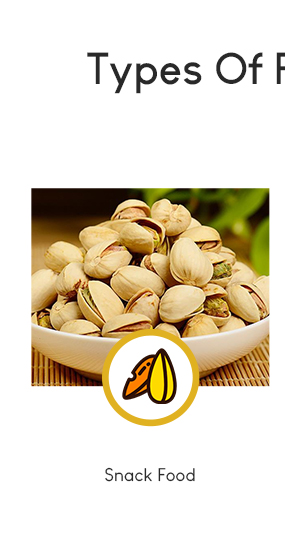 |
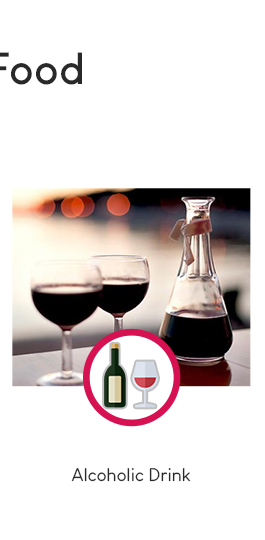 |
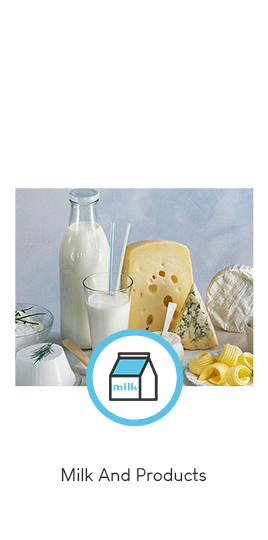 |
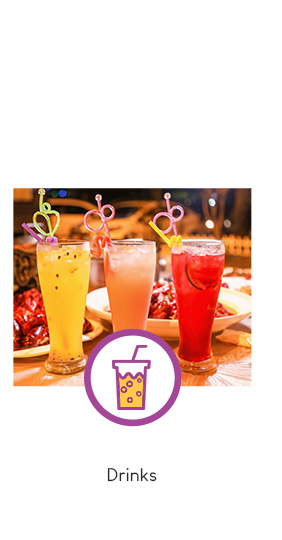 |
||
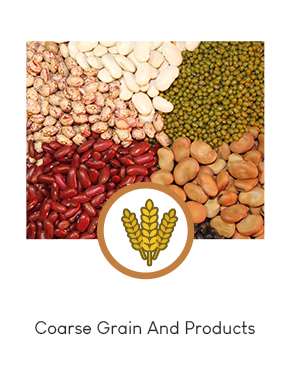 |
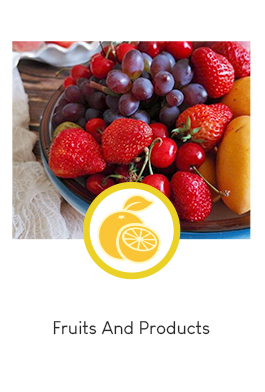 |
 |
 |
||
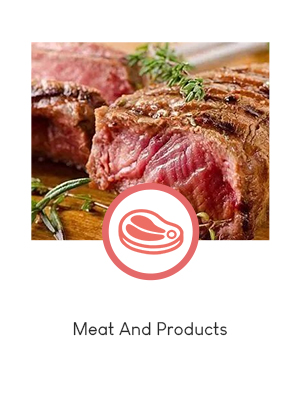 |
 |
 |
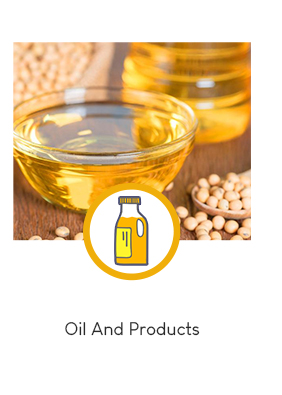 |
||
 |
 |
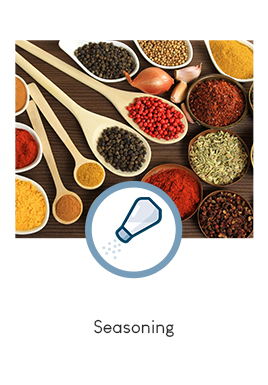 |
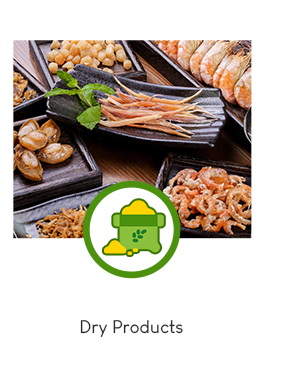 |
||
 |
|||||
